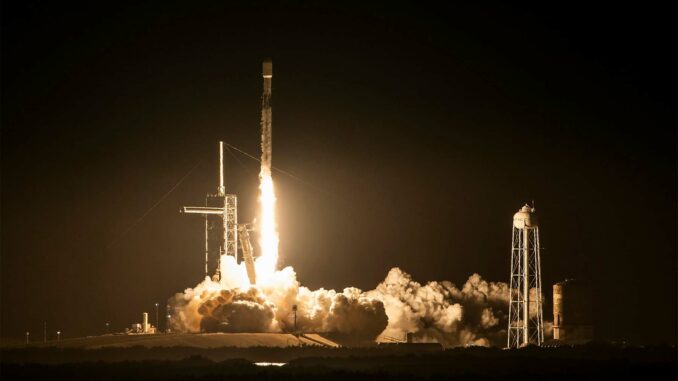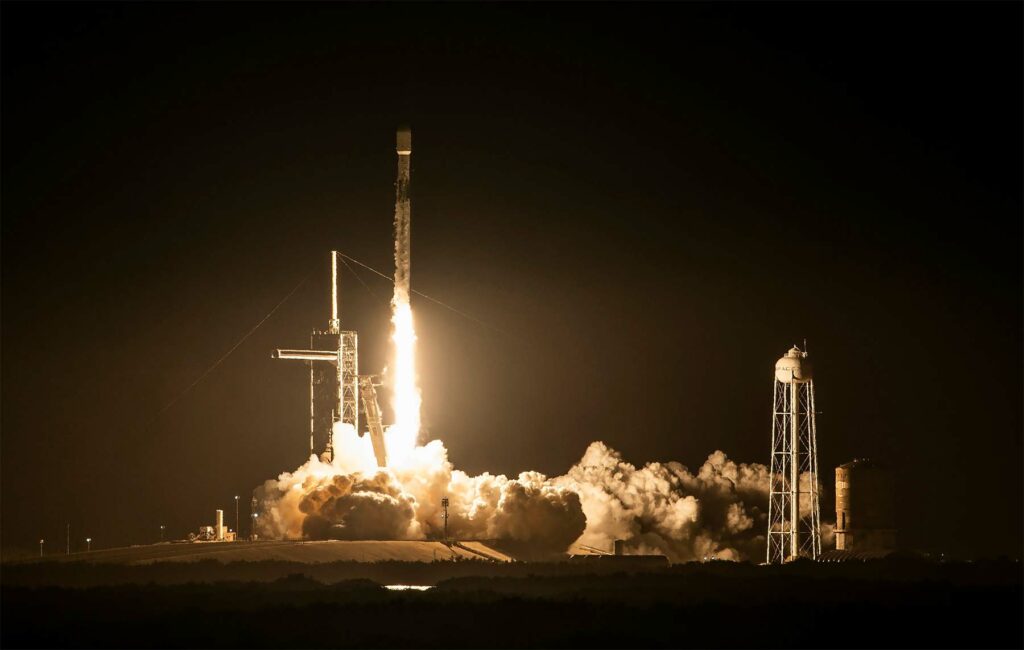
A commercial spacecraft is about to land on the Moon, marking a turning point for the US private space industry.
The private space industry is about to reach a historic milestone with the attempted Moon landing by Texas-based Intuitive Machines. This event, scheduled for tomorrow evening near the lunar south pole, could not only redefine the space race, but also pave the way for astronauts to return to the Moon. If successful, it will be the first time a private company has managed to land a lander on Earth’s cosmic companion since the Apollo era, marking a significant evolution in private sector involvement in space exploration.
A technical and commercial feat
Intuitive Machines is about to pull off a feat that could well transform the space industry. Their Odysseus spacecraft, launched on February 15 via a SpaceX Falcon 9, is aiming for a soft landing near the lunar south pole. Beyond its ambition, this project embodies the commercial sector’s acceptance of risk and determination to get involved in space exploration. Odysseus, powered by an innovative super-cooled liquid oxygen and liquid methane system, represents the pinnacle of modern engineering. Its mission? To conduct experiments for NASA that will facilitate the return of humans to the Moon, marking the beginning of a new era of lunar exploration driven not only by national space agencies but also by the private sector.

The context of lunar ambition
This landing attempt by Intuitive Machines is part of a broader context of renewed interest in the Moon, driven by NASA and its international partners, as well as the private sector. NASA’s Artemis program, aimed at establishing a lasting human presence on the Moon, relies on initiatives like Intuitive Machines’ to prepare the ground. The choice of the Malapert A site, close to the lunar south pole, is not insignificant: it represents a major strategic interest for future exploration, in particular for the extraction of resources such as icy water, essential for life and the production of rocket fuel. In this context, the role of private enterprise, encouraged by contracts such as the $118 million one awarded to Intuitive Machines, is crucial in reducing costs and stimulating innovation.
The consequences of a new lunar chapter
The successful landing of Odysseus could mark the beginning of a new chapter in space exploration, characterized by increased collaboration between government space agencies and the private sector. This mission, if successful, will not only validate the technical and operational capabilities of private companies in complex space missions, but will also open the door to future commercial missions to the Moon and beyond. However, failure cannot be ruled out, and is a reminder of the challenges inherent in space exploration. The implications of success or failure are considerable, both for US space strategy and for the role of the private sector in the future of space exploration and exploitation. The potential impact on the lunar economy, science, technology and society in general could be monumental, redefining our relationship with space.
Towards a new era of space exploration
Intuitive Machines’ initiative, if successful, will be more than just a lunar landing. It will represent a turning point in the history of space exploration, illustrating the ability of the private sector to actively participate in missions hitherto reserved for national space agencies. This mission is the prelude to an era in which the exploration and use of space will be the fruit of collaboration between the public and private sectors, opening up new prospects for mankind in space.
War Wings Daily is an independant magazine.